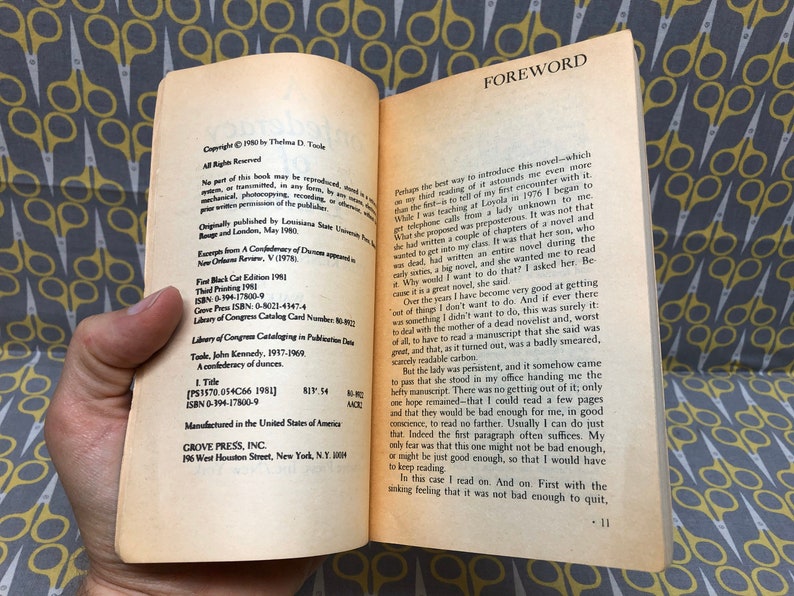

These job experiences likely provided models for Ignatius's own exploits at Levy Pants and Paradise Vendors, Incorporated.

Army for two years, Toole also worked, on at least one occasion, selling tamales from a cart on the streets of New Orleans. Following his graduation from Tulane, Toole worked briefly at a men's clothing factory. Many of Ignatius's foibles and misadventures are taken from Toole's life as well. This description of Toole's downfall is a strikingly accurate potrayal of Ignatius. A result, his behavior and attire became increasingly eccentric, and his classes included long rants that turned off many of his students. Later in life, after failing to get A Confederacy of Dunces published and becoming frustrated at having to live with and support his parents, Toole spiraled into depression and alcoholism. Upon reaching adulthood, both Ignatius and Toole spent several years at universities, earning prestigious degrees and teaching classes, although neither achieved success during his lifetime. Like his protagonist, the author spent his childhood under the thumb of a dominating matriarch. Reilly appears to be modeled largely on Toole himself. The book's title is derived from a sentence in Jonathan Swift's "Thoughts on Various Subjects, Moral and Diverting": "When a true genius appears in the world, you may know him by this sign, that the dunces are all in confederacy against him."

Since then, the book has sold more than 1.5 million copies in 18 languages, has won the Pulitzer Prize (1981), and has been adapted in preparation for a possible film. Percy immediately fell in love with the novel, and it was published in 1980, with Percy providing the foreword. Following Toole's suicide, his mother sought out author Walker Percy and insisted that he read the manuscript of A Confederacy of Dunces. Neither book was published during Toole's lifetime. A Confederacy of Dunces is one of two novels written by John Kennedy Toole, the other being The Neon Bible, which he wrote at age 16.


 0 kommentar(er)
0 kommentar(er)
